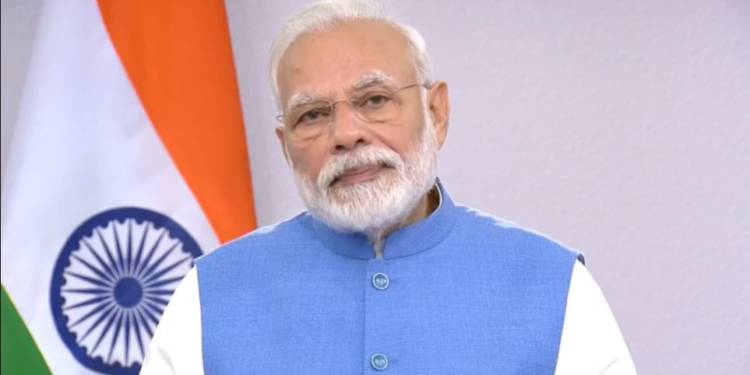PM Modi steeped up the campaign against Coronavirus outbreak this Thursday. In a speech directed at reassuring the citizenry about India’s fight-back against the Pandemic, he announced a Janata curfew for 14 hours- 7 AM to PM this Sunday, that is, March 22. Asking for citizens’ cooperation, he said, “No citizen should venture out of their homes. Only those related to essential services should go out.”
This curfew is going to test the waters as far as stepping up measures to plug the spread of the Wuhan virus is concerned. This is like the Fundamental Duty to “defend the country and render national service when called upon to do so.” With this the discipline of Indian citizens and their capability to co-operate with the authorities is going to be tested.
In his balanced speech, PM Modi used the right combination of alarmism and reassurances to ensure that citizens are made aware of what we are facing and yet avoiding the kind of panic that could cause more harm than good.
While seeking cooperation of the citizens, he said, “If possible, please call at least 10 people every day and tell them about the ‘Janata curfew’ as well as the measures to prevent coronavirus,” and at the same time made an earnest appeal to stop panic-buying and hoarding of essential goods and medicines.
On the face of it, Janata Curfew seems like a one-day exercise to create awareness among citizens, but in substance it seems more like a precursor to bigger, longer measures. Janata Curfew is in all probability a drill to make people aware of what the nation is facing, show them the gravity of the situation and at the same time ensure there is no sense of unnecessary panic.
India is currently at stage II of the Coronavirus, and we have not yet entered the community transmission mode, but as testing enters war-mode with the Indian Council of Medical Research (ICMR) taking the lead, and if any evidence of community transmission is found, the fight against Coronavirus will also intensify- more Janata Curfews or complete lockdowns will be on the cards, and a lot will depend on the extent of cooperation shown on March 22.
Coronavirus cases are continuously rising in India, though the rate of spread has been kept under check and there has not been a rise of the kind witnesssed in the severely affected countries. At the time of writing this article, the number of cases had jumped to 223.
Currently, the Modi government is hoping for the best, it would want the virus to wither away even before India enters the stage of community transmission and escape unscathed, but it is also preparing for the worst at the same time.
While the West resisted ‘panic’, a humble India used wisdom and sagacity. The Modi government took exemplary measures to plug the flow of virus into India- screening facilities were installed at the airports, the suspected patients were tracked and even quarantined when needed, those trapped abroad in Iran and China evacuated, and visas cancelled well within the nick of time.
Till now, we have been successful in combating the Wuhan virus, but as we enter the next stage, efforts will have to intensify further. Lockdowns would not be a drastic measure even if the number of infected patients is relatively low- case in point being the ‘Patient 31‘ in South Korea, who had failed to isolate herself in the nick of time in South Korea. Today, eighty per cent of the cases in the Coronavirus-hit country are attributed to ‘Patient 31’.
One infected person can therefore wreck havoc and the China-made virus can spread like a wildfire. It is true that COVID-19 has a low fatality rate, and even lower in India given its young demographics- the share of elderly population in the coutnry being merely 8 per cent. It doesn’t kill the infected immediately and has a mild effect.
However, one Coronavirus starts spreading, it spreads like wildfire and this is evident from the experience of Italy, Iran and South Korea. India cannot afford this epidemic as it will put a great stress upon our medical facilities which will be at threat of being overwhelmed and badly overstretched. Delayed diagnosis and treatment can cause a number of fatalities, which we must guard against.
This is exactly why Janata curfew is critical. Modi government understands that precention is better than cure, and it is about time that citizens understand that too.




























